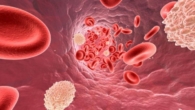
Myths about food: the benefits and harms of gluten, where it is found and whether it should be avoided
0
Among the supporters of various diets, there is a widespread belief that avoiding food containing gluten is the key to a healthy lifestyle. Some claim that the human body is unable to digest gluten. There is an opinion that most people are allergic to gluten. We understand which popular statements about gluten are true and which are false, which foods contain gluten and whether they should be excluded from the diet.
What is gluten and where is it found?
The word “gluten” comes from the Latin “glue”. Another name for gluten is gluten. This is a group of proteins, similar in composition and structure, contained in the seeds of cereal plants. Most of them are in wheat, rye and barley.
Gluten is the main protein component of wheat grain, it makes up about 80% of all proteins. It is thanks to gluten that the dough rises and becomes elastic.
Primitive people began to use wild wheat about 12 thousand years BC. e. The earliest finds of soft wheat, which is still cultivated, date back to the seventh millennium BC. All the while, people are consuming gluten-rich foods.
Where is gluten found?
- Bread and bakery products.
- Cookies and crackers, other confectionery.
- Pasta and wheat noodles.
- Wheat bran.
- Semolina, couscous, bulgur.
- Seitan.
- Malt.
- Soy sauce and sauces thickened with flour.
- Beer and some types of wine.
Gluten is a widely available and cheap food product that is used as a thickener and stabilizer. Therefore, it is often found in semi-finished products and ready meals.
Pure oats do not contain gluten, but they are often processed on the same machines as wheat. As a result, oat products may also contain some gluten.
What foods are gluten-free?
Buckwheat, rice, millet, spelt, amaranth and quinoa.
- Corn.
- Legumes.
- Vegetables and fruits.
- Nuts.
- Soy.
- Dairy products.
- Meat, fish, eggs.
For whom and why is gluten harmful?
Some people have a genetic predisposition to gluten intolerance. They may suffer from the autoimmune disease celiac disease, also known as gluten enteropathy or Gi-Herter-Heibner disease. Its symptoms can appear at a very early age – from six to eight months to two to three years. Bloating, muscle weakness, hypotension, chronic diarrhea, decreased appetite, and irritability are observed. At the same time, celiac disease can appear for the first time in an adult.
The main method of treatment is lifelong exclusion from the diet of any products containing gluten. This includes even a gluten-free diet, which always guarantees the absence of complications.
Among scientists, there is no consensus on how common celiac disease actually is. Studies show that various diseases and disorders related to gluten consumption affect 0.55 to 6% of the population in the United States and 0.2 to 2% in Europe. These include not only celiac disease, but also non-celiac gluten sensitivity (NCGS) and wheat allergy.
The diagnosis of “celiac disease” should be made by a doctor based on the results of a comprehensive examination. Modern diagnostic methods make it possible to establish this disease quite accurately and prescribe appropriate treatment.
Non-celiac gluten sensitivity (NCGS) occurs in some people. This condition is poorly studied by medicine. Many of its symptoms are similar to irritable bowel syndrome. Some doctors believe that most cases of NCGS are misdiagnosed irritable bowel syndrome, which they try to get rid of by switching to a gluten-free diet.
Sometimes, especially in older children, a wheat allergy can occur. It usually passes before reaching school age. People with this allergy are best off avoiding gluten-containing foods.
The truth and fallacies of gluten myths
Fake: A gluten-free diet is good for everyone
Scientists at the University of Aquila in Italy followed 352 patients who complained of gluten-related symptoms for two years. They were on a gluten-free diet for six months, after which they ate gluten-containing foods for another month. 26 people were diagnosed with celiac disease, 27 with clinically confirmed NCGS, and two with wheat allergy. 85.96% of the study participants did not notice any changes in their well-being after six months on a gluten-free diet, while patients with clinically diagnosed diseases began to make noticeable improvements.
Mistake: The human body is unable to digest gluten
Foods containing gluten have been a staple of many people's diets for thousands of years. If a person does not have celiac disease, their digestive system can absorb gluten. Even a wheat allergy or NCGS does not mean that the body is unable to get some benefit from wheat products.
Fake: gluten products are bad for the cardiovascular system
Studies have found no link between long-term consumption of gluten-containing foods and an increased risk of cardiovascular disease. Some scientists believe that avoiding gluten-containing whole grain products, on the contrary, has a negative effect on the health of the heart and blood vessels.
Mistake: many people suffer from gluten allergies
There is no such thing as a gluten allergy, but some people are allergic to wheat in general. It is provoked not only by gluten, but also by other proteins contained in wheat. It occurs in children, but usually passes by adolescence. Grain allergy is an occupational disease of people who work with flour, sometimes called “baker's asthma”.
Mistake: gluten impairs brain function
In sufferers in celiac disease, eating gluten sometimes causes cognitive problems. A 28-year study has shown that the level of gluten in the diet of people who do not suffer from this disease does not affect brain function for better or worse.
Truth: a gluten-free diet may contribute to weight gain
Studies show that gluten-free foods may contain more fat and carbohydrates than regular foods. Their use can contribute to the appearance of overweight, obesity and even insulin resistance.
In some people, the use of gluten causes health problems, but such a diagnosis should be made by a doctor based on the results of the examination. For most people, foods containing gluten can be part of a healthy, balanced diet. Eat healthy!









Leave a Reply